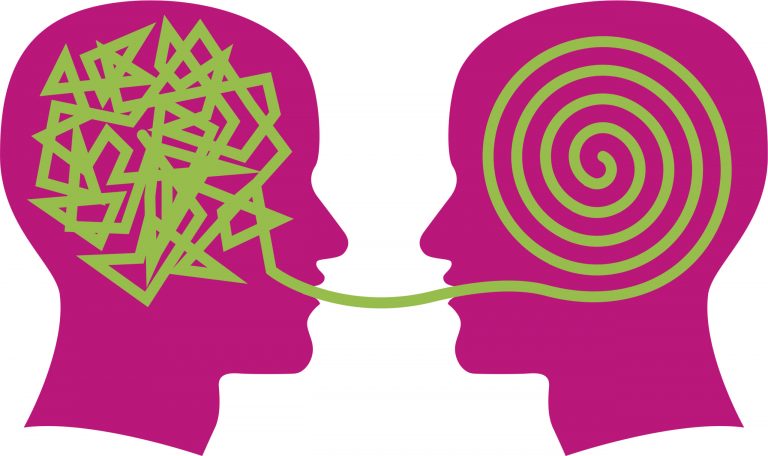Studies have shown that there is a clear link between behaviour and mental health. The way we think often influences the way we act, and sometimes the inverse is also true – the way we behave and act can influence our thoughts and emotions. If you’ve found yourself pondering what cognitive behavioural therapy (CBT) is and how it might benefit you, you’ve landed on the right article. Below we will explain what CBT is and what the primary benefits are. We will also address a commonly asked question related to this technique – what is the difference between behavioural health and mental health?
What is cognitive behavioural therapy?
Cognitive behavioural therapy has been a staple in the arsenal of therapists and psychologists for decades. It is an effective method of helping patients deal with a variety of mental health issues ranging from anxiety and depression to stress management and negative thought patterns. In essence, it revolves around the concept of altering dysfunctional emotions and behaviours by challenging distorted thoughts and beliefs. The therapy is generally short-term and goal-oriented, focusing on immediate issues and how to solve them. Therapists employ evidence-based techniques to help individuals develop coping strategies for tackling challenging situations, and therapy often involves tasks and exercises to practise these strategies in real life.

What are the benefits of CBT?
There are many benefits to a CBT-centric approach. However, it is important to note that a holistic approach is often better when it comes to therapy, which means that mental health professionals will often use other tools and techniques in conjunction with CBT for optimum efficacy. No singular approach is “correct,” which means it is up to the therapist and the patient to work together to discover what works best. That being said, CBT has numerous benefits, making it one of the more popular psychotherapeutic techniques out there. Below are some of the biggest benefits of CBT:
- Enhanced self-awareness: one of the standout benefits of CBT is its ability to foster a more profound level of self-awareness. It goes beyond surface-level diagnosis, peering into the intricate network of thoughts, emotions, and behaviours that make up your mental landscape. This enriched self-knowledge empowers you to recognise trigger points and dysfunctional thought patterns before they escalate, allowing for effective self-regulation.
- Practical application: unlike some therapies that stay rooted in dialogue, CBT moves from the couch to real-world application. Therapists often provide worksheets, digital apps, and at-home tasks that enable you to practise your newfound skills in real-life settings. This ‘homework’ solidifies the strategies you’ve discussed in therapy, making them readily available to you in stressful or triggering situations.
- Reduced symptom severity: CBT has been clinically proven to alleviate a range of mental health symptoms. Its effectiveness is particularly noted in the treatment of anxiety disorders, depression, and obsessive-compulsive disorder (OCD). By providing coping mechanisms and tools for cognitive restructuring, CBT has demonstrated the potential to substantially reduce symptom severity, making daily life more manageable for patients.
- Evidence-based approach: CBT’s methods and techniques are grounded in empirical evidence, lending it a credibility that is highly regarded in the mental health community. The treatment protocols are continually updated with the latest research findings, ensuring that the therapeutic process is both effective and up-to-date.
- Flexibility: while CBT has a structured approach, it is also highly flexible and can be tailored to individual needs. It can be applied as a standalone therapy or integrated into a broader treatment plan, making it incredibly versatile in the mental health services sector.
What is the difference between behavioural health and mental health?
Mental health and behavioural health are often seen as two sides of the same coin, but there are some differences that make them distinct concepts. Mental health focuses on cognitive and emotional wellbeing, encompassing things like mood, thought patterns, and how one handles stress or interacts socially. Treatment for mental health conditions may involve medication, psychotherapy, or other targeted interventions.
On the other hand, behavioural health is broader, incorporating not just mental wellbeing but also behaviours that impact one’s overall health, such as diet and exercise. This comprehensive view considers the interplay between mental conditions and lifestyle choices, including substance use. This dual focus on both cognitive patterns and tangible actions is what makes CBT such a compelling approach to wellness. It aims to treat not only the mind but also the behaviours that can either aggravate or mitigate mental health conditions.
Give cognitive behavioural therapy a chance
There is no denying that cognitive behavioural therapy can produce spectacular results when administered by a skilled professional and with active participation of a receptive patient. For those who are new to the field or are seeking mental health services, MindBerry is an esteemed platform that could guide you through your journey. Its balanced and tailored therapies often incorporate CBT as part of a multi-faceted approach to mental wellbeing.
Consider giving CBT a try; it could very well be the turning point you’ve been searching for in your mental health journey.


